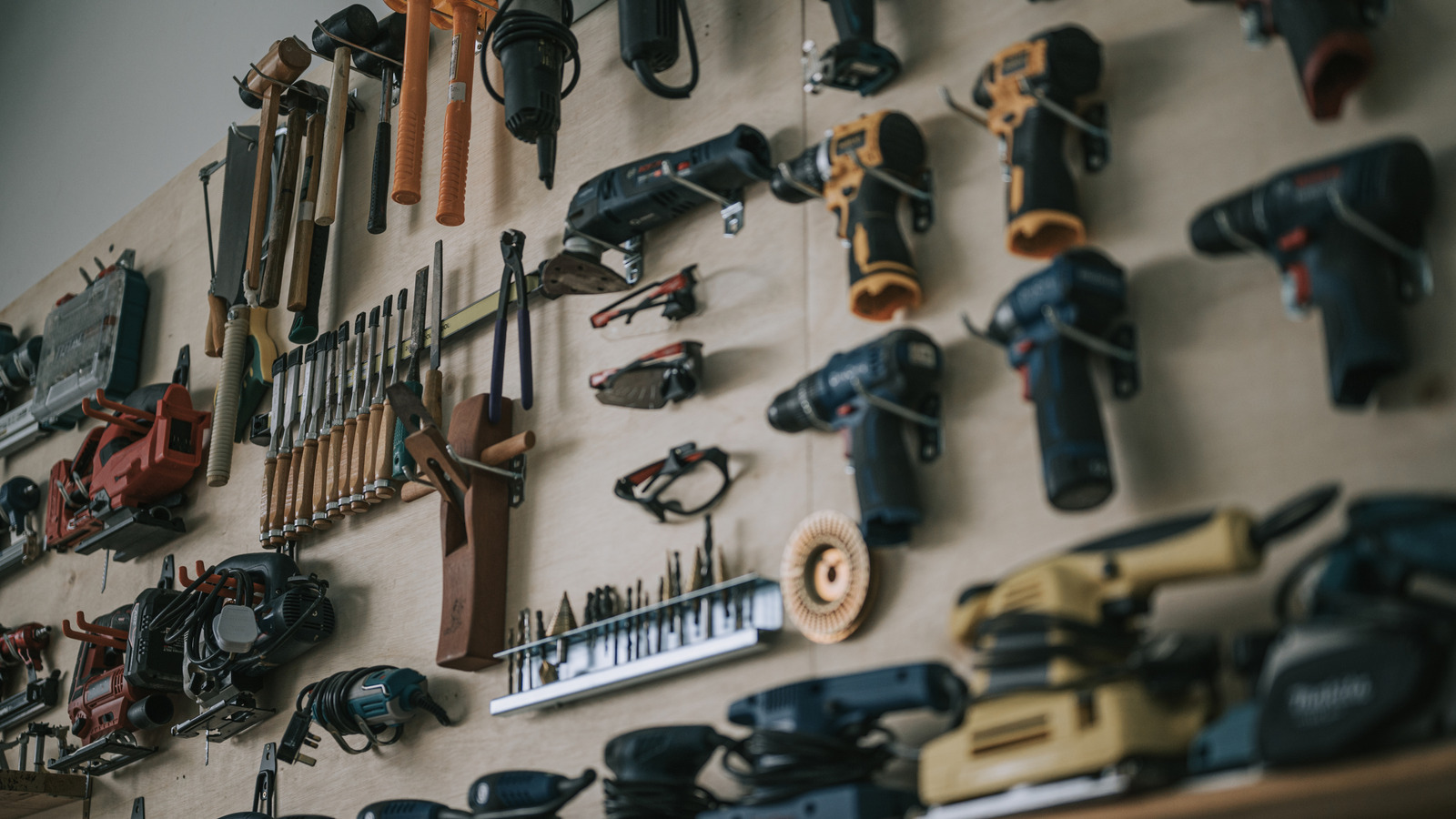Business
Discover the Hidden Owners Behind Major Tool Brands

The power tool market is a complex landscape, with many brands competing for consumer loyalty. While users often choose brands based on performance or personal preference, the ownership of these brands may surprise them. Numerous American tool brands are no longer owned by domestic companies, having undergone acquisitions and mergers, making it essential to understand who truly benefits when a consumer purchases a tool.
Skil: From Historic Innovation to Global Ownership
Skil celebrated its 100th anniversary in 2024, tracing its origins back to 1924. Founded by Joseph W. Sullivan and Edmond Michel, the brand gained fame for its electric handsaw, initially designed to assist sugar cane workers. Over the years, Skil expanded its product lineup to include lawnmowers and measuring tools. In 1996, the company was acquired by the German Bosch Group and remained under its ownership for more than two decades. In 2017, the Chinese toolmaker Chervon Group completed its acquisition of Skil, making it a wholly owned subsidiary.
Ryobi and Techtronic Industries’ Rise
Founded in 1943, Ryobi originally manufactured die-cast parts for the Japanese military before pivoting to automotive components. By the 1960s, it entered the power tool arena. Its North American power tools division was sold to Techtronic Industries (TTI) in 2000, which still owns the brand today. TTI’s portfolio also includes recognizable names like Homelite and Milwaukee. Milwaukee, established in 1924, initially gained acclaim when Henry Ford commissioned it to develop a power drill for his production lines. Acquired by TTI in 2005, Milwaukee has since launched a successful range of cordless tools featuring interchangeable batteries.
Independence Among Major Brands
Amidst this corporate consolidation, some brands remain independent. Makita, founded in 1915, has maintained its operations in Anjo, Japan, while diversifying its product range over the years. Makita introduced its first battery-powered tools in 1978 and has expanded its global presence, focusing exclusively on electric power tools since 2022.
Another notable independent brand is DeWalt, which emerged in 1924 with the invention of an adjustable radial arm saw. Acquired by Black & Decker in 1960, DeWalt has since developed a comprehensive range of portable electric power tools. The company became part of Stanley Black & Decker following a merger in 2010.
Heritage Brands and Recent Acquisitions
Founded in 1927, Craftsman began as an in-house tool brand for Sears and was acquired by Stanley Black & Decker in 2017. The same year, Stanley Black & Decker also acquired Irwin and Lenox, adding to its extensive portfolio. Mac Tools, another brand under this umbrella, continues to manufacture some of its products in the United States.
Ridgid, a longstanding name since 1923, was acquired by Emerson Electric in 1966. While its traditional tools remain under Emerson, its power tools are licensed by TTI, illustrating the complex relationships within the industry.
International Players and Innovations
In the realm of international brands, Hilti stands out. Founded in 1941 in Liechtenstein, Hilti launched its first power-actuated nailer in 1953 and remains family-owned today. The company has expanded its product range significantly over the decades, focusing on power tools while successfully entering various markets.
Similarly, Stihl, founded in 1926, continues to thrive as a family-owned company, known for its chainsaws and outdoor power tools. Unlike many competitors, Stihl has retained its production of gas-powered tools alongside electric options.
The ownership structure of Bosch is also unique. With 94% of its shares held by the Robert Bosch Stiftung GmbH foundation, Bosch uses its profits for philanthropic efforts while also owning the Dremel tool brand since 1993.
With brands like Flex and Festool also making their mark, the power tool market reflects a diverse mix of ownership structures. Flex, acquired by Chervon in 2013, operates with a degree of independence, while Festool remains a family-owned brand under TTS Tooltechnic Systems.
Understanding the ownership of these tool brands offers consumers insight into the broader landscape of the industry. As acquisitions and mergers continue to shape the market, knowing who owns what can influence purchasing decisions and brand loyalty.
-

 Entertainment2 months ago
Entertainment2 months agoIconic 90s TV Show House Hits Market for £1.1 Million
-

 Lifestyle4 months ago
Lifestyle4 months agoMilk Bank Urges Mothers to Donate for Premature Babies’ Health
-

 Sports3 months ago
Sports3 months agoAlessia Russo Signs Long-Term Deal with Arsenal Ahead of WSL Season
-

 Lifestyle4 months ago
Lifestyle4 months agoShoppers Flock to Discounted Neck Pillow on Amazon for Travel Comfort
-

 Politics4 months ago
Politics4 months agoMuseums Body Critiques EHRC Proposals on Gender Facilities
-

 Business4 months ago
Business4 months agoTrump Visits Europe: Business, Politics, or Leisure?
-

 Lifestyle4 months ago
Lifestyle4 months agoJapanese Teen Sorato Shimizu Breaks U18 100m Record in 10 Seconds
-

 Politics4 months ago
Politics4 months agoCouple Shares Inspiring Love Story Defying Height Stereotypes
-

 World4 months ago
World4 months agoAnglian Water Raises Concerns Over Proposed AI Data Centre
-

 Sports4 months ago
Sports4 months agoBournemouth Dominates Everton with 3-0 Victory in Premier League Summer Series
-

 World4 months ago
World4 months agoWreckage of Missing Russian Passenger Plane Discovered in Flames
-

 Lifestyle4 months ago
Lifestyle4 months agoShoppers Rave About Roman’s £42 Midi Dress, Calling It ‘Elegant’









